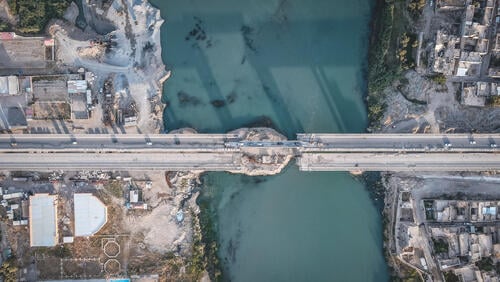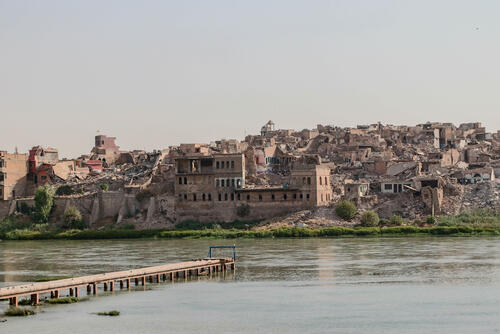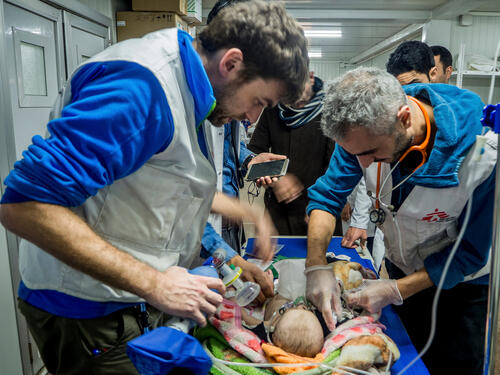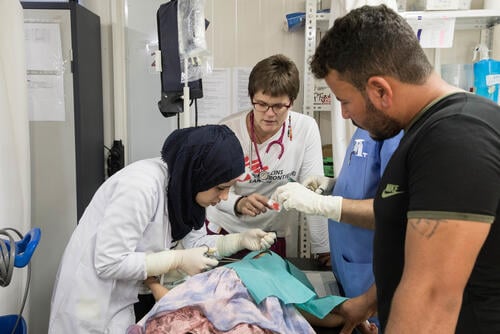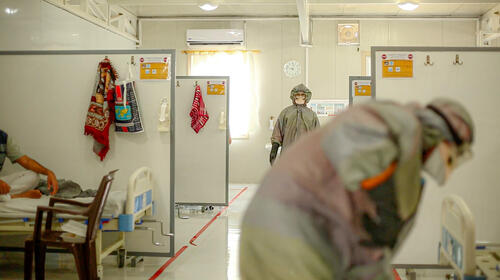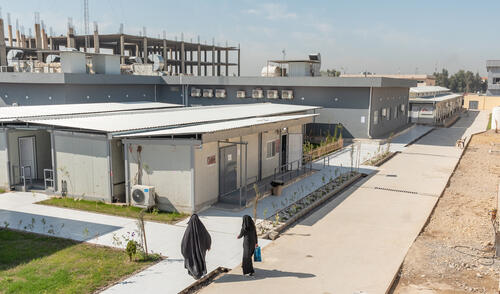In October 2016, the military offensive to retake the city from the Islamic State (IS) group began. The battle was officially declared “over” five years ago, on 10 July 2017. For the people of Mosul, life has slowly resumed, but rebuilding the city is still taking time, and the healthcare system is no exception to that. The voices of Mosulis tell the story of a community’s effort to face daily challenges, a story of resilience and hope.
In 2016, Mosul, the second largest city in Iraq, experienced one of the deadliest urban battles since the Second World War.
“Mother of two springs, that is what we call the city,” says Imad Abdullah, a patient at the MSF-run Al-Wahda hospital for orthopaedic surgeries in East Mosul. “Nowhere in the world can you find this beautiful season happening twice.
“When I think about what Mosul has been through during the war, it is as if my son was in the emergency room, and I'm waiting outside, worried, hoping he will survive,” says Imad.
Five years after the battle officially ended and Iraqi forces retook the city from IS, people have returned to Mosul and life in the city is resuming, despite the many challenges people face and the destruction that is still visible.
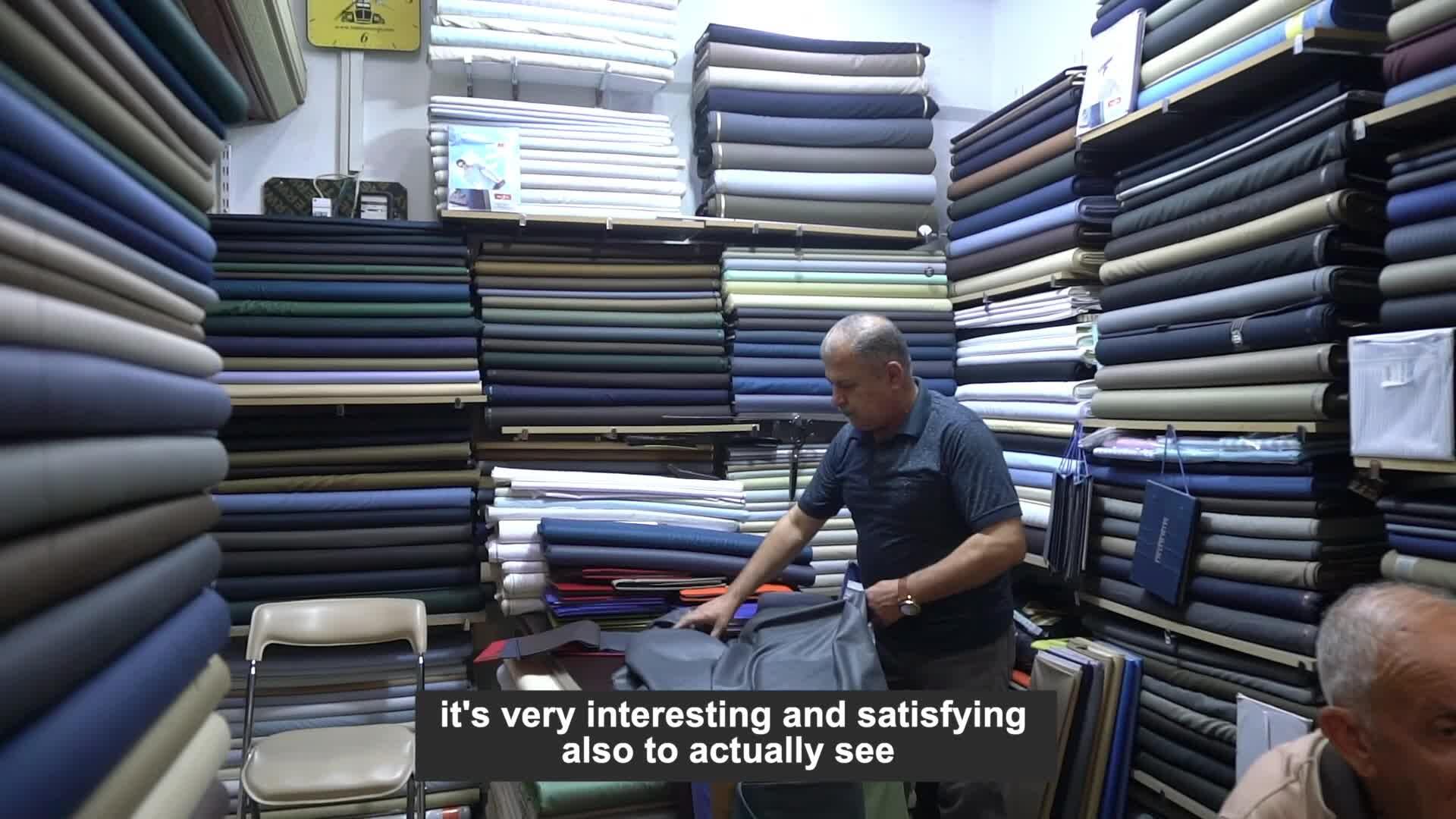
Mosul, five years after
From a war-torn town to a lively city
“Mosul has seen radical changes over the past five years,” says Sahir Dawood, MSF’s health promoter in Mosul. “The first time I went back to the city, just after the end of the battle, it felt like a ghost town. I would look to my right, to my left, and all I saw was rubble, destroyed buildings, and empty streets, with a few exhausted people here and there. But now, when I go around the city, I see people working and going out. I see buildings standing, streetlights lit during the night.”
Today, bridges that were destroyed during the war have reopened and West and East Mosul are reconnected again. Over the past five years, people living in Mosul have seen the streets change, as barriers and checkpoints were gradually removed - a sign of improved security. Today, parents are no longer afraid to let their children play outdoors and send them to school.
Needs still outweigh recovery efforts
Even though the people of Mosul feel change, their daily reality is not without challenges. Many families lost everything in the war, and still struggle to earn a livelihood or find suitable accommodation. Without job opportunities, especially for young people, it is hard for many families to settle. The slowly recovering economic and social situation is an extra burden on people.
Mosul once had the second-largest healthcare system in Iraq, but the situation is far from what it used to be before the war. As medical facilities were heavily damaged, people still struggle to access affordable high-quality healthcare. The destruction did not spare facilities outside of Mosul either, therefore people often have to make long trips to reach the few functioning ones in town.
“Patients are coming from afar to give birth in our hospital,” says Sulav Al-Hamza, MSF’s maternity supervisor in Nablus hospital, West Mosul. “They are supposed to access those services in a hospital or healthcare facility close to them, but that is not the case. To date, people lose their lives on the roads even if they only need simple procedures or treatment.”
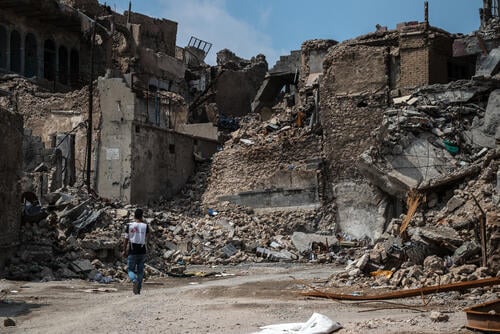
“I’m a mother of three children, so I often need to visit healthcare facilities,” says Jihan Ahmed*, caretaker and aunt of Samad, a newborn at Nablus hospital. “We struggle to access affordable quality care, that’s why we came all the way from East Mosul.”
Now, the main hospitals have reopened in temporary structures and caravans, which are just short-term solutions. There are also still supply and medication shortages. Far fewer surgeries per day are possible compared to before the war, as resources have to be rationed.
“Today the needs are clearly still massive,” says Esther van der Woerdt, MSF head of mission in Iraq. “The three MSF facilities in town continue to receive large numbers of patients coming to seek maternity, paediatric, emergency or surgical care.”
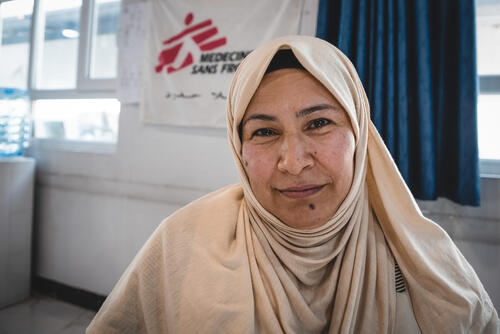
Enduring consequences of war
During the war, people lived in constant fear thinking they may lose their house, their family members or their life at any time. Hanan Arif, who now works with MSF, had to reassure her children and show strength for her family. Due to the violence, they eventually fled.
“We fled our neighbourhood by foot, crossing to East Mosul. Halfway over the bridge I stopped and looked back. The scene of smoke and destruction broke my heart. It was such a pain to see Mosul, our beloved mother like that, dying in front of our eyes.”
In 2017, the majority of patients in MSF facilities in and around Mosul were dealing with psychological issues due to the war. Although mental health needs have reduced, the trauma people experienced is not forgotten.
“During the battle, we were locked in the city,” says Rahma, an MSF translator from Mosul. “We had no other choice but to witness the violence and the war. What we experienced had an impact on our mental health. Even today, I hear sounds of rockets and explosion - even if they are only in my mind.”
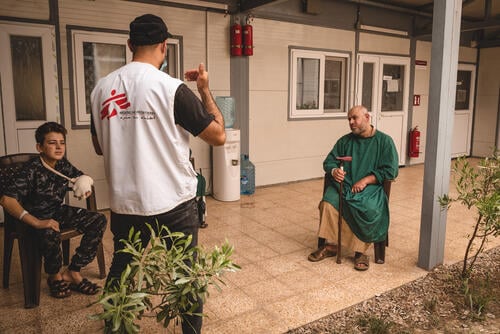
Faris Jassim was injured during the battle. He has suffered several complications, undergone 25 surgeries, and has still not fully recovered. “I went through very complicated moments after being injured,” says Faris. “For two years I had suicidal thoughts because of all these surgeries and treatments that seemed endless to me.
“But when I started to see my leg recovering, I felt hope again. It’s a huge leap to go from wheelchair-bound to walking independently now.” Faris is about to be discharged from the MSF-run Al-Wahda Hospital in East Mosul and the first thing he is eager to do is to go back to work in his shop.
The people of Mosul have faced many difficulties, but they never lack courage, patience and strength. “Things are improving step by step,” says Sahir Dawood, MSF health promoter. “But because what Mosul has been through is not simple, there is no magical solution to fix everything quickly.”
“It's satisfying to actually see positive developments in the city,” says van der Woerdt. “We hope that rebuilding the city and the healthcare system will pick up more speed as we go. Because Mosul still has a long way to go to stand again and for its people to feel a full recovery. This can only be achieved with support. Mosul will need support for years to come.”
*Name has been changed to protect identity.



